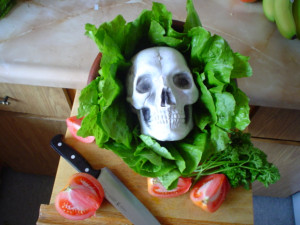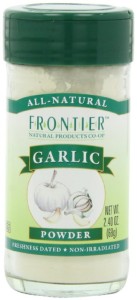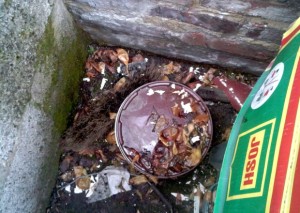Small- and medium-size farms in the mid-Atlantic region of the United States use varied agricultural practices to produce leafy greens during spring and fall, but the impact of preharvest practices on food safety risk remains unclear.
 To assess farm-level risk factors, bacterial indicators, Salmonella enterica, and Shiga toxin-producing Escherichia coli (STEC) from 32 organic and conventional farms were analyzed.
To assess farm-level risk factors, bacterial indicators, Salmonella enterica, and Shiga toxin-producing Escherichia coli (STEC) from 32 organic and conventional farms were analyzed.
A total of 577 leafy greens, irrigation water, compost, field soil, and pond sediment samples were collected. Salmonella was recovered from 2.2% of leafy greens (n = 369) and 7.7% of sediment (n = 13) samples. There was an association between Salmonella recovery and growing season (fall versus spring) (P = 0.006) but not farming system (organic or conventional) (P = 0.920) or region (P = 0.991). No STEC was isolated.
In all, 10% of samples were positive for E. coli: 6% of leafy greens, 18% of irrigation water, 10% of soil, 38% of sediment, and 27% of compost samples. Farming system was not a significant factor for levels of E. coli or aerobic mesophiles on leafy greens but was a significant factor for total coliforms (TC) (P < 0.001), with higher counts from organic farm samples. Growing season was a factor for aerobic mesophiles on leafy greens (P = 0.004), with higher levels in fall than in spring. Water source was a factor for all indicator bacteria (P < 0.001), and end-of-line groundwater had marginally higher TC counts than source samples (P = 0.059).
Overall, the data suggest that seasonal events, weather conditions, and proximity of compost piles might be important factors contributing to microbial contamination on farms growing leafy greens.
The growing season, but not the farming system, is a food safety risk determinant for leafy greens in the mid-Atlantic region of the United States
Applied and Environmental Microbiology
Sasha C. Marine, Sivaranjani Pagadala, Fei Wang, Donna M. Pahl, Meredith V. Melendez, Wesley L. Kline, Ruth A. Oni, Christopher S. Walsh, Kathryne L. Everts, Robert L. Buchanan, and Shirley A. Micallef
http://aem.asm.org/content/81/7/2395.abstract?etoc
A repeated cross-sectional study was conducted to identify farm management, environment, weather, and landscape factors that predict the count of generic Escherichia coli on spinach at the preharvest level.
E. coli was enumerated for 955 spinach samples collected on 12 farms in Texas and Colorado between 2010 and 2012. Farm management and environmental characteristics were surveyed using a questionnaire. Weather and landscape data were obtained from National Resources Information databases.
 A two-part mixed-effect negative binomial hurdle model, consisting of a logistic and zero-truncated negative binomial part with farm and date as random effects, was used to identify factors affecting E. coli counts on spinach.
A two-part mixed-effect negative binomial hurdle model, consisting of a logistic and zero-truncated negative binomial part with farm and date as random effects, was used to identify factors affecting E. coli counts on spinach.
Results indicated that the odds of a contamination event (non-zero versus zero counts) vary by state (odds ratio [OR] = 108.1). Odds of contamination decreased with implementation of hygiene practices (OR = 0.06) and increased with an increasing average precipitation amount (mm) in the past 29 days (OR = 3.5) and the application of manure (OR = 52.2).
On contaminated spinach, E. coli counts increased with the average precipitation amount over the past 29 days. The relationship between E. coli count and the average maximum daily temperature over the 9 days prior to sampling followed a quadratic function with the highest bacterial count at around 24°C.
These findings indicate that the odds of a contamination event in spinach are determined by farm management, environment, and weather factors. However, once the contamination event has occurred, the count of E. coli on spinach is determined by weather only.
Multifactorial effects of ambient temperature, precipitation, farm management, and environmental factors determine the level of generic Escherichia coli contamination on preharvested spinach
Applied and Environmental Microbiology
Sangshin Park, Sarah Navratil, Ashley Gregory, Arin Bauer, Indumathi Srinath, Barbara Szonyi, Kendra Nightingale, Juan Anciso, Mikyoung Jun, Daikwon Han, Sara Lawhon, and Renata Ivanek
http://aem.asm.org/content/81/7/2635.abstract?etoc
 One of my hockey buddies sent me a citizenfoodsafety submission (above, exactly as shown) that exemplifies a physical (and potentially biological) food safety hazard. The story that goes along with the picture goes like this: my friend’s colleague was eating some guacamole, sensed something chewy and pulled a band-aid out of her mouth.
One of my hockey buddies sent me a citizenfoodsafety submission (above, exactly as shown) that exemplifies a physical (and potentially biological) food safety hazard. The story that goes along with the picture goes like this: my friend’s colleague was eating some guacamole, sensed something chewy and pulled a band-aid out of her mouth.












